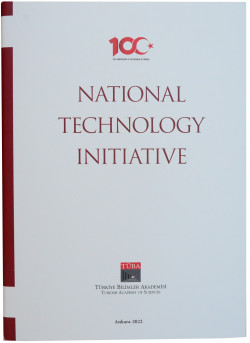Transformation of Technology Policies and its Economic Effects in Türkiye

Transformation of Technology Policies and its Economic Effects in Türkiye
Technological development, which consists of invention, innovation and diffusion processes, is used synonymously with productivity increase and can be expressed as the emergence of various information that provides the opportunity to produce output in larger quantities, superior and quality output from a certain source. The technology levels of the economies are also the determinants of their ability to compete with each other and their economic development rankings. Economists emphasize the necessity of technological innovations, which are the product of human capital accumulation, for long-term productivity growth. So much so that the benefit obtained from the products obtained by the methods brought forward by the technological development may be greater than the costs incurred for the new methods of production. Because the expenditures made on technological development are an investment and no other investment can provide the benefit that they provide in the long run. Because every technology investment can have continuity with a process that can feed each other. In many scientific studies, the place of technological development for economic growth is emphasized with different expressions. While pointing out the “mental labor of people” or “technological innovations that are the product of creative intelligence” as the source of economic growth, it is stated that “qualified technological production and investment amount” is at the top of the development criteria of countries. Moreover, instead of the inadequacy of financial and real capital, factors such as inaccessibility to new information, inability to use existing technology, and insufficient human capital are put forward as the cause of underdevelopment. Various indicators are used in the technological competencies of countries such as the share allocated to R&D expenditures; number of scientists-technical personnel working in R&D services; the number of patents received; the number of scientific publications produced; the number of users of computers, internet and communication tools, and the rate of technology-intensive products with high added value in total exports. On the other hand, the innovation skills or technological development rankings of countries are measured through the “Global Innovation Index”. Statistical results show that the Turkish economy has made slow progress in the development of science and technology policies, and is far from the average of OECD countries. Similarly, when the indicators are compared with the averages of E7 countries, although Türkiye’s place is in the middle, it is understood that it is above the levels determined as threshold values in some indicators and may be in a better position in the future. In the global innovation index ranking, while Türkiye ranks 41st out of 131 countries, it is observed that the scoring difference between them and the first country is about two times.
